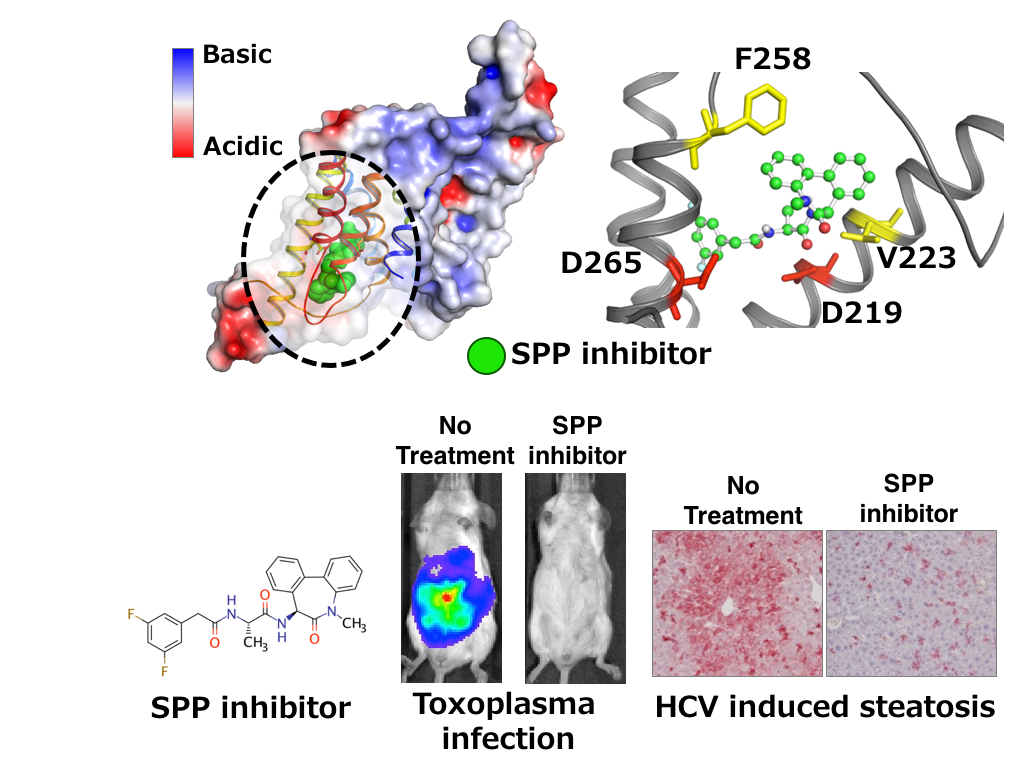SPP is an ideal target for therapeutics against not only chronic hepatitis C but also protozoiasis (Matsuura Lab, in PNAS)
Hepatitis C virus (HCV) is a major causative agent of chronic liver diseases including steatosis, cirrhosis and hepatocellular carcinoma (HCC). Signal peptide peptidase (SPP) is an intramembrane aspartic protease involved in the maturation of the core protein of hepatitis C virus (HCV). The processing of HCV core protein by SPP has been reported to be critical for the propagation and pathogenesis of HCV. Here we examined the inhibitory activity of inhibitors for γ-secretase, another intramembrane cleaving protease, against SPP. In an analysis using an in silico structural-based approach, we demonstrate that Val223 and Phe258 of SPP interacts with the inhibitors for SPP and γ-secretase. In addition, we showed that human SPP (hsSPP) and Plasmodium falciparum SPP (pfSPP) are functionally similar and that the inhibitors for SPP suppress the propagation of protozoa, including Plasmodium falciparum and Toxoplasma gondii. These data provide clues to the development of novel SPP-targeting therapeutics for chronic hepatitis C and protozoiasis.
This article was published in PNAS on Nov 27, 2017.
Characterization of SPP inhibitors suppressing propagation of HCV and protozoa
Related Links
- Home
- Achievement
- Research Activities
- SPP is an ideal target for therapeutics against not only chronic hepatitis C but also protozoiasis (Matsuura Lab, in PNAS)








